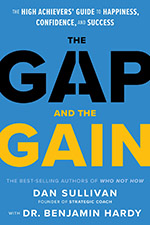Resource Gems:
AI Tools to Amplify Your Studio
Andrea Miller
MTNA Business Digest
Volume 4, Issue 3
April 2025
The AI landscape is constantly evolving and can seem overwhelming. Are you curious about how to use AI to enhance your studio and boost your effectiveness, but not sure where to start? Here are five practical ways to use AI to support some of the basic tasks in our studios.
- Capture lesson notes with Fireflies
Have you ever opened your lesson notes from a previous week, only to find incomplete or incoherent notes? Or have you had to ask a student to wait in their lesson so you can finish writing notes?
Using an AI-supported note-taking app like Fireflies.ai allows you to be more present in the lesson (and more thorough in your notes) by taking notes for you.
Fireflies can record, transcribe, summarize lessons and even capture action items.
It even works for in-person lessons!
Price: Free plan with optional paid upgrades
- Recital writing with SpeechGenerator
Most of us do not have the luxury of a personal speech writer to prepare witty (or heartwarming or inspirational or grateful…or whatever sentiment you’re going for!) recital speeches... until now!
With SpeechGenerator, you select the type and topic of your speech, preferred length, tone and additional details for personalization, and SpeechGenerator delivers a draft you can use “as is” or modify to your liking.
I highly recommend at least trying the “humorous” tone of speech, if only to enjoy a chuckle for yourself!
Price: Free for up to 50 speeches/mo.
- Brain dump to the ultimate active listener with AudioPen
If you’ve ever had a hard time organizing your thoughts or you like to think out loud, AudioPen might be your new best friend. Simply open the app (available on browser or mobile) and start rambling.
AudioPen will wrangle your brain dump into something coherent and easy to share in a variety of formats.
Price: Free plan with optional paid upgrade for longer voice notes and many more time-saving features
- Discover new repertoire with ChatGPT
Finding new repertoire is always rewarding, but beginning the hunt can feel a bit aimless. An AI chatbot like ChatGPT is a great tool to kick off your search for new repertoire.
Try starting with a prompt that describes what kind of music your student has enjoyed and what kind of repertoire you want to find for them. For instance: “I have an early advanced piano student who enjoys playing anime music. Can you recommend some piano repertoire by lesser-known female composers?”
ChatGPT will produce a list of repertoire to explore, with notes about the features of each piece. Now you can start your treasure hunt with a map!
Price: Free plan with optional paid upgrades.
- Experience the strengths of different AI chatbots
ChatGPT may be the most familiar AI chatbot, but there are several that offer similar capabilities and each has its own strengths.
ChatGPT is known for its versatility, while Claude (https://claude.ai) is known for a more “human-like” interaction and often preferred for longer-form responses.
Gemini is tightly integrated with Google products, while Copilot is integrated with Microsoft applications.
It’s worth trying them all to see which you like best!
Price: Free and paid versions available
These AI tools and their descriptions, capabilities and pricing plans are based on information available at the time of this writing. Enjoy the exploration and expect AI tools to continue evolving!
Looking for a good read?

Heather Smith, NCTM
The Gap and The Gain: The High Achievers' Guide to Happiness, Confidence, and Success by Dan Sullivan and Dr. Benjamin Hardy
The Gap and The Gain and Its Relevance to Music Education
I recently read The Gap and The Gain, by authors Dan Sullivan and Dr. Benjamin Hardy. In this book, they introduce a powerful mindset shift that can transform the way we measure success in any aspect of life. They argue that people tend to focus on the gap between where they are and their ideal. This comparison trap often leads to frustration and unhappiness. Instead, they advocate focusing on the gain, measuring how far one has come rather than how far there is to go. “Always measure backwards” is a principle that has profound implications for music educators, studio owners and performers alike. By shifting our perspective from what is lacking to what has been achieved, we can foster greater motivation, resilience and long-term success.
Teaching with a Focus on the Gain
Sullivan and Hardy emphasize that measuring progress by looking backward rather than forward leads to a more fulfilling and productive mindset. This is especially relevant in music education. Students frequently judge their abilities based on what they cannot yet do. The goal could be mastering a difficult piece, achieving a high exam score or performing with confidence in front of an audience. If they measure themselves against perfection, they will always feel like they are falling short.
By applying the gain mindset, music educators can help students recognize their progress. Instead of only focusing on mistakes, teachers can highlight what has improved since the previous lesson. Sullivan and Hardy suggest keeping a record of achievements over days, weeks, months and even years. This strategy could be implemented in lessons by having students reflect on what they have accomplished each week. Recording performances and comparing them over time can also help students see their own growth, reinforcing the principle of measuring gains rather than focusing on the gap.
Studio Business Growth Through Small Gains
The Gap and The Gain also applies to studio owners striving to grow their businesses. Many educators set high expectations for their studios, whether it is filling a teaching schedule, expanding studio space or increasing revenue. Sullivan and Hardy explain that high achievers are often their own worst critics because they measure themselves against an ever distant ideal rather than their actual progress towards that ideal.
Instead of dwelling on what is missing, music educators can apply the gain mindset by recognizing and tracking incremental progress. Accepting one additional student in the studio, introducing a new program such as group lessons or improving marketing efforts are gains that should be acknowledged. By focusing on these small but steady improvements, educators create a sense of accomplishment that fuels continued growth.
Focusing on the Gain in Professional Development
Sullivan and Hardy also address how the gap mindset can be detrimental to personal and professional development. Music educators often hold themselves to high standards and may feel they are falling short if they still have not achieved a specific certification, published articles or presented at national conferences. Instead of measuring success by an external benchmark, educators should acknowledge the distance they have already traveled in their careers.
Sullivan and Hardy emphasize a key factor in long term success is recognizing progress. One way to do this is to create the habit of writing down three wins every day before going to sleep each night. I have found that no matter how hard or difficult any day has been, writing these wins helps me have a positive hope for more success and bigger wins the next day.
Conclusion
The Gap and The Gain offers a transformative perspective that is especially valuable in the field of music education. The principles can be applied to guide students toward recognizing their progress, grow a studio through steady improvements or measure personal development as an educator. Sullivan and Hardy’s framework provides a practical and motivating approach to daily and life-long success. By applying the gain mindset each day, music educators can foster a more positive learning environment, feel more joy in their interactions and influence on students, and create sustainable business growth.
Ask Us Anything!
MTNA Business Network
Welcome to this new segment, designed to meet your needs! This issue’s question comes from an independent teacher in a rural area of Washington:
Question: “I am aware that antitrust law prohibits us from discussing tuition rates at our local association meeting. Can we do a survey of our teachers and ask about tuition rates? I see that MTNA did a membership survey recently.”
Answer:
First, you are correct that teachers at a local association meeting should not discuss tuition rates. The Federal Trade Commission (FTC) views any gathering of teachers as a group of competitors. When competitors discuss current pricing rates or pricing-related policies among themselves, this is viewed as price-fixing by antitrust law and is illegal.
But, we also want to be knowledgeable about business trends in our profession, including tuition rates! This is where a member survey can gather relevant data while abiding by legal requirements. The FTC has recognized the collection of historical data by an independent third party that is then shared or reported on an aggregated basis is unlikely to raise competitive issues. In the MTNA Antitrust Compliance Guide, the following procedures are recommended:
- Utilize an independent third party, such as a state or local association, to collect, compile and manage the data. This means the staff of the association should be collecting and compiling the information rather than the volunteer members who are also engaged in music teaching.
- Gather historical data. For music teachers, this typically means tuition rates from the prior teaching year since most teacher change their rates annually (rather than monthly or weekly).
- The data collection should involve a minimum of five participants, and questions should be designed such that no one is able to identify the data of any particular participant by looking at the survey.
The recent MTNA 2024 Member Survey was conducted by following these guidelines. The survey’s questions can serve as a model for local and state surveys. For more insights on best practices for conducting a member survey, check out this article.
Information provided in this answer is for educational purposes only. If you have questions about antitrust law and how it affects MTNA members and/or the teaching profession, please contact the MTNA Antitrust Compliance Officer Brian Shepard.
Do you have a question for the MTNA Business Network teachers? Ask us anything! Submit questions or provide feedback.

Andrea Miller
is the piano teacher and entrepreneur behind the Music Studio Startup podcast and blog. She talks about all thing business and coaches musicians who want to build financially sustainable studios..

Heather Smith, MM, MBA, NCTM, was the MTNA Secretary-Treasurer and served on the Foundation Fund Development Committee and currently serves on the MTNA Business Network. She is the director of development and advancement for the Frances Clark Center.